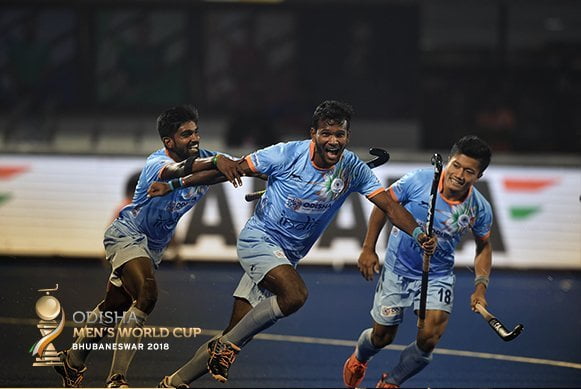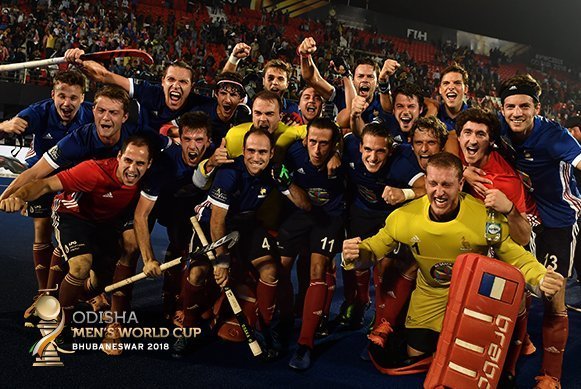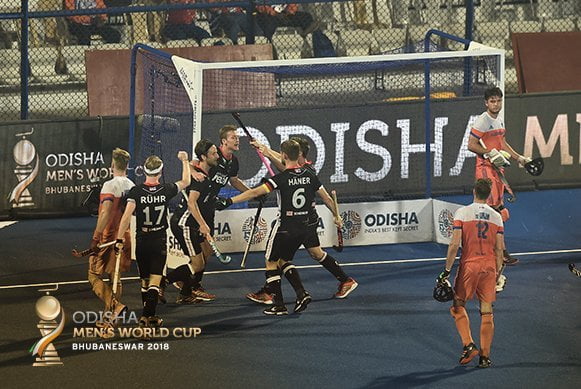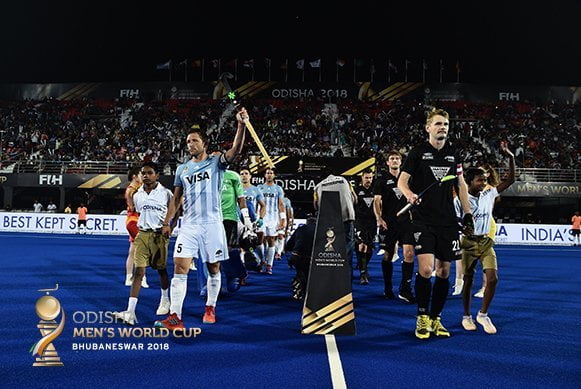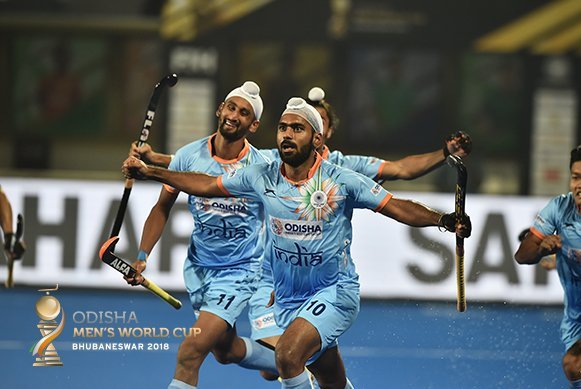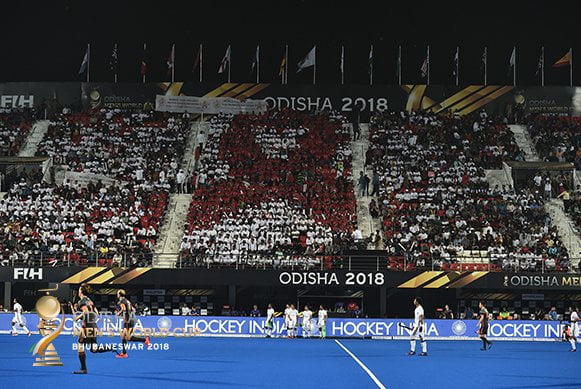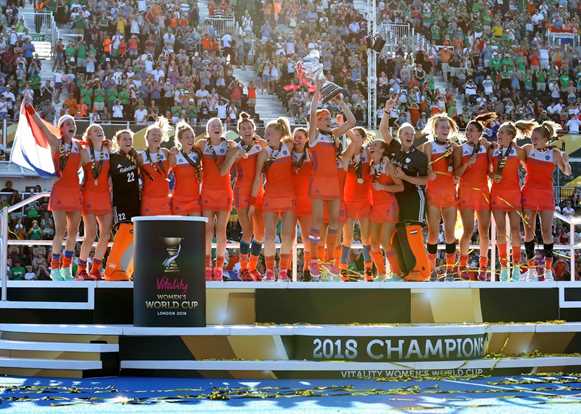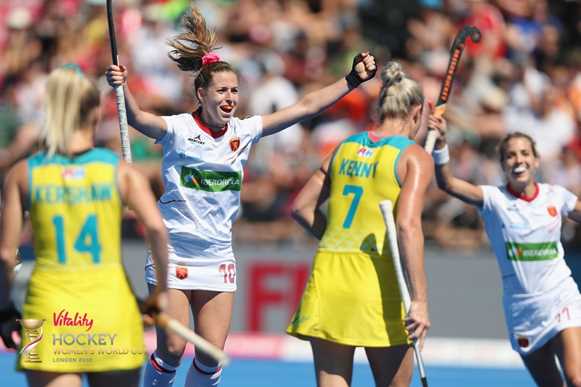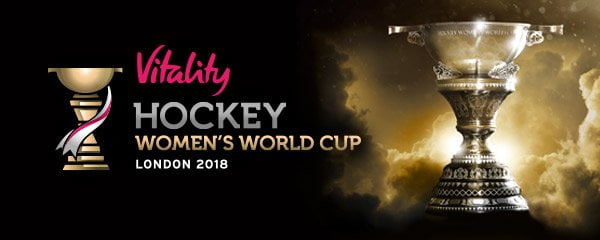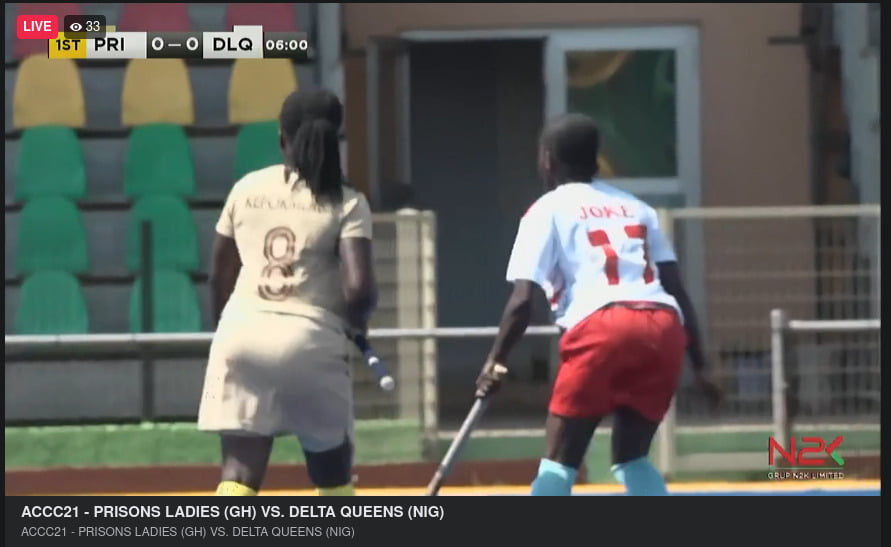December 08 | Story By FIH Bhubaneswar, India: It all came down to goals in the final round of Pool C matches at the Odisha Hockey Men’s World Cup 2018. Belgium knew they had to score a lot of goals against South Africa if they were to keep India from taking top spot in the pool. While their penalty corners were effective, the Red Lions lacked bite when it came to scoring from field play and a number of chances to score went to waste. In the second match, host nation India knew they purely needed a win over Canada in order to top the pool and win a ticket straight to the quarter-finals. A Canadian team, who defended brilliantly for the first two quarters and were on equal terms for the first three quarters, put pressure on India, but an exhilarating fourth quarter saw India storm to a 5-1 win and take pole position in Pool C. The opening game of the day was just 35 seconds old when South Africa (FIH Hero World Ranking 15) took the lead against their higher-ranked rivals, Belgium (WR:3). Nicholas Spooner was the scorer as he gathered the ball from a fantastic pitch-splitting pass from Rhett Halkett and then slammed it into the corner of Vincent Vanasch’s goal. However, Shane McLeod’s Red Lions have come to Bhubaneswar with a firm intention to make the podium and the higher ranked team quickly recovered from the setback and began to turn the screw, not just on South Africa, but also on India, who were vying with the Red Lions for the top of the pool. At the start of the game India had a superior goal difference – plus five to Belgium’s one – so Belgium’s task was clear. McLeod says that penalty corners have been a focal point for his side and the team soon demonstrated their efficiency in this area. Alexander Hendrickx is the in-form penalty corner specialist for Belgium at the moment and his two goals from penalty corners in the first half sandwiched a neatly taken field goal by Player of the Match Simon Gougnard. A fourth goal was added when Loick Luypaert also showed his prowess from the top of the circle. The half-time stats spoke for themselves, while possession was nearly equal between the teams, the significant figures for Belgium were three penalty corners, three goals. South Africa made their own chances in the opening 30 minutes with the best chance falling to Dayaan Cassiem. The midfielder received the ball in the centre of the Belgium circle and should have capitalised. His shot flew wide of Vanasch’s far post. The second half saw Belgium continuing to press forward, and Tom Boon will be disappointed not to have added to the score when he was through on goal twice in quick succession but was not balanced enough to shoot with any force. A series of three Belgium penalty corners were dealt with by Gowan Jones who replaced Rassie Pieterse in the South Africa goal. Hendrickx thought he had scored his third goal when he slotted home a penalty corner, but the injected ball was judged not to have left the circle before Hendrickx shot for goal. The final minutes of the third quarter saw South Africa pile on pressure of their own. A quick break found captain Tim Drummond on the baseline and he was able to slip the ball back to goalscorer Spooner. Unfortunately for South Africa, Spooner shot over the crossbar. Seconds later a penalty stroke was awarded to South Africa but was disallowed on referral. Belgium went into the final quarter knowing they needed to score more goals in order to keep the pressure on India and Cedric Charlier was quick to deliver. He pounced on a ball that was slipped from the baseline by Gougnard, who had muscled his way past the South Africa defence. The drama intensified in the final few minutes as Belgium sought another goal. For their part, South Africa were working hard to find a second goal but it was Belgium who found the net as the game came to an end. For Belgium’s goal difference this was crucial but the referral showed that the goal was scored after the final hooter had gone and the score remained 5-1 meaning India just needed a win over Canada in the second match of the day to finish top of the pool. Player of the Match Simon Gougnard was in critical mood despite the win as he discussed his team performance in the post-match interview: “I don’t think we put enough pressure on India tonight. We started poorly and we didn’t put enough pressure on South Africa throughout the match. We made a lot of stupid mistakes in the game. There is a lot for us to look back over and which we will work on. We must also work on our structure and try to reduce the number of turnovers during a game. Our penalty corner worked well, so we are quite pleased with that aspect of the game.” Belgium captain Thomas Briels added: “We did not start so well tonight but we played better and better. I think that’s a bit the difference with the first two games where we started really good but could not keep up our performances. So that’s really good to see. In the end we could have scored more goals if we would have been a bit more smart. During this first round, we played some really good hockey but we were not really consistent, so we have to analyse that and we can improve for the next round.” The second Pool C match pitted a stoic Canada team, who had conceded no penalty corners prior to this match, against an Indian side determined to take the top of the pool position. The first quarter saw a pressure cooker of an atmosphere slowly build on the pitch and in the stands. That tipped over in the
